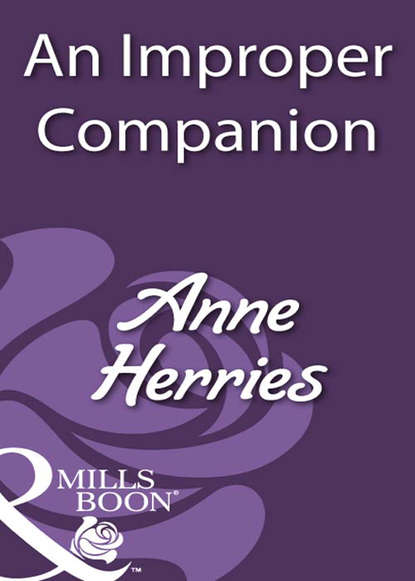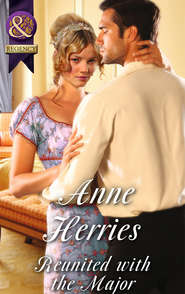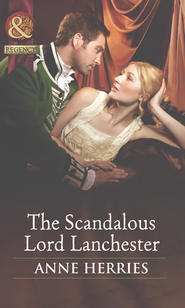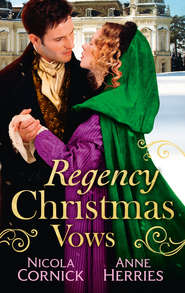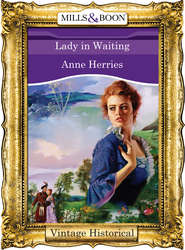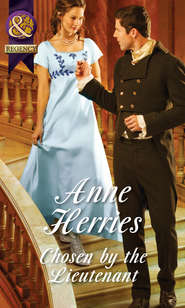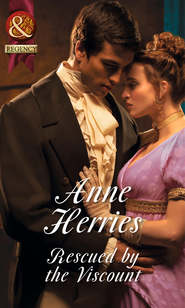По всем вопросам обращайтесь на: info@litportal.ru
(©) 2003-2024.
✖
An Improper Companion
Настройки чтения
Размер шрифта
Высота строк
Поля
‘Indeed, that is Wentworth’s opinion,’ his lady said, ‘but he was not able to shake the statement’s of those witnesses—though, in truth, most were Sir Montague’s cronies, but Mr Elworthy is an honest man. If it were not for his testimony, Wentworth would have contested the wager in court, but he respects Elworthy and says he would not lie.’
‘Yes, I know.’ Elizabeth frowned. It was only the testimony of Mr John Elworthy that had prevented her from asking their lawyer to fight Sir Montague Forsythe’s claims against the estate, but Lord Wentworth had advised her against it, saying the little money they had left would otherwise be lost. Yet it had rankled with Elizabeth, for, like her mama, she had refused to believe that her father would do such a foolish thing as to bet everything they had on a horse race. ‘I suppose we must accept it that Papa drank more than usual and threw everything away on a whim.’
‘Sad as it is, that seems to be the case.’ Lady Wentworth looked at her unhappily. ‘Well, if you insist upon taking up this position, you will allow us to send you in our carriage, my dear. At least Lady Isadora will know that you have friends who care for you.’
‘That is very kind and I shall not refuse,’ Elizabeth said. She was glad of the offer; though she still had a little money at her disposal, it was not much above fifty pounds. She had given the better part of what they had to her brother Simon. It was Simon’s fate she worried about more than her own: he had naturally expected to inherit their father’s estate and would now have to make his own way in the world, which would not be easy for a young man of his volatile nature. She at least had been fortunate enough to be offered a position with a lady in Yorkshire—a lady of whom Elizabeth’s mother had spoken warmly in the past.
‘This Lady Isadora…’ Lady Wentworth screwed up her brow in thought. ‘Your mother’s old friend, you said? What is her family, Elizabeth?’
‘She is the late Earl of Cavendish’s widow and the daughter of a marquis,’ Elizabeth said with a slight frown. ‘I have only met her once, when she called to see Mama on her way to stay with her husband’s uncle—the Marquis of Brandon. She stayed with us one night and I remember that she was a kind, sweet-faced lady. She gave me a doll, and Simon five guineas.’
‘A generous lady, then.’ Lady Wentworth nodded approvingly. ‘And what are her terms, my dear? You must not mind me asking, for I would not have your good nature taken advantage of and some people appear kinder than they truly are.’
‘Lady Isadora asked me if I would prefer a dress allowance or a wage and I asked for an allowance.’ Elizabeth flushed. ‘Mama would have been very shocked had she known I was to seek employment as a companion, and I think she would have preferred me to take the allowance.’
‘If you would but let me…’ Lady Wentworth sighed and gave up as she saw the girl’s look. ‘I shall say no more, dearest, but remember that you always have a home here.’
‘Yes, of course. You are always so kind.’ Elizabeth kissed her cheek and rose to take her leave. She still had some packing to do and there were other friends she should bid farewell that afternoon. ‘I shall write to you as often as I can and let you know how I go on.’
Elizabeth was thoughtful as she walked towards the dower house that had been her home for the better part of the year. She was thankful for Lady Isadora’s letter that had come just in time, because she had been on the point of approaching an agency to help her seek out the right kind of employment. She had secretly been examining the ladies’ magazines that Lady Wentworth was so kind as to pass on for a suitable post these past weeks. Her situation had become more urgent since her mother’s death. Lady Travers had been in possession of a small jointure, which remained hers despite the loss of the estate. However, it ceased on her death, leaving her children with almost nothing other than what she had managed to save. Even when her mother was alive, Elizabeth had believed she must look for employment and now she had no choice. Or at least none that she felt able to accept.
Elizabeth had known that her mother would find it painful to see her daughter take employment, but thought that she must have mentioned the possibility in her letters to Lady Isadora. Of course, they had not expected that Elizabeth would so soon be orphaned, for Lady Travers had not been particularly delicate, but she had taken a sudden virulent fever and perhaps had lacked the desire to live. Elizabeth had written to her mother’s old friend to tell her the news and some weeks later received an offer to become Lady Isadora’s companion.
Elizabeth had at first been afraid that she was being offered charity and had delayed answering for nearly a month, but Lady Isadora’s second letter had made it clear that she was truly in need of a companion. She had been ill this past winter and was unable to walk far without assistance. She needed someone to run her errands and read to her, because some days she was confined to her bed. Her letter had touched Elizabeth’s heart, and she realised that it was exactly the kind of position that would best suit her. Being so recently bereaved, she would not feel comfortable in a household where there was a constant stream of guests, and it appeared that Lady Isadora lived alone, rarely receiving visits from her family. It was exactly as Elizabeth had lived with her mother these past months—they had seldom gone into company after Sir Edwin’s death.
Lady Wentworth had been all that was kind, but Elizabeth had felt that she was being smothered by her friend’s good nature. Besides, to remain so near the estate that had been so cruelly taken from them was a source of continued grief. Had it not been for that wicked wager—which Elizabeth felt must somehow have been forced on her dear papa—he and Lady Travers might both be still be alive.
How could he have done such a foolish thing? Elizabeth had puzzled over it again and again, but she was no nearer to finding a solution. Simon had told her that he intended to get to the bottom of things, but she had begged him to be careful. He was nineteen years old, four years younger than Elizabeth, and inclined to be hot headed.
‘Father was cheated,’ her brother had told her angrily before he rode back to Oxford after her mother’s funeral. ‘I know it, Bethy, and one day I shall prove it and claim back my inheritance.’
‘I do not deny that I think the circumstances strange,’ Elizabeth said. ‘But there were witnesses and—’
‘Only one that was not in the palm of that rogue’s hand,’ Simon Travers said. ‘I have written to Elworthy twice and asked to meet, but he has refused. If there were not some havey-cavey business, he would surely have agreed. Why should he not?’
Elizabeth had found it impossible to give him a reason for Mr Elworthy’s behaviour, which seemed odd to her—as, indeed, were all the circumstances of the affair. She could not blame her brother for wishing to investigate further, as she might herself had she been in his shoes, but she did fear that he might land himself in some trouble. She could not bear it if Simon were to end up putting a pistol to his head as their father had done the day after the disastrous wager.
It had taken Lord Wentworth’s word to persuade her that Papa had not been murdered. Even now, she still had a nightmare in which her father appeared to her and demanded justice for his wrongful demise.
Sighing, Elizabeth pushed the disturbing thoughts away from her. There was nothing to be gained from dwelling on the past—she could not bring back her beloved parents. She must make up her mind to do the best she could for her future employer and simply pray that Simon would stay out of trouble.
‘But that is shameful of you, Mama,’ the Earl of Cavendish said, a wicked sparkle in his blue eyes. He was glad that he had decided to come down, for it was exactly what he needed to sweep away his growing sense of restlessness. His mother was up to mischief and his good humour was restored, his quest to find Sarah banished temporarily from his mind. ‘To lure the girl here under false pretences that way…’ His gaze swept over her fashionable toilette, taking in her elegant gown and the lustre of eyes that were almost a mirror image of his own. ‘I will own that it is almost two months since I last visited you, but…’
His mama gave a little cough and lay back against the piles of silken cushions on her elegant daybed. ‘Have you no pity for your poor mother, Daniel? I have had a terrible chill and my doctor absolutely forbade me to leave my room for ten days. I was confined to bed for five. You cannot imagine how tedious that was, dearest—especially as your sister is increasing and cannot come to me. I was lonely. Besides…’ her eyes twinkled with mischief ‘…in her last letter, my dear Serena told me that Elizabeth is very proud—a lady of character. She suspected that the girl intended to find some employment and of course it upset her dreadfully…poor Serena. It is all the fault of that scoundrel Sir Montague Forsythe, of course. He cheated her poor husband out of his estate and in desperation the foolish man put a pistol to his head.’
‘Yes…’ The earl’s eyes narrowed thoughtfully. ‘Had Elworthy not witnessed the scene I might have doubted the wager ever took place—but he swears it was as Forsythe says and I have never known John to lie.’
‘No, indeed. When Serena told me that your friend was the one reliable witness my heart sank, Daniel, for I could not doubt him. He would never lie for anyone—and especially a man he despises.’
‘That has been my experience, though he says he was not one of their party, merely an observer.’ The earl’s face was thoughtful, and there was something in his eyes that might have led the men he had fought with in Spain some years earlier to suspect that he was not being as open as he might be on the subject of Sir Montague Forsythe.
‘Well, we must suppose it was an aberration,’ Lady Isadora said and sighed. ‘But I have been determined to do something for the family since I learned of their trouble. I would have offered Serena a home here had the Wentworths not done so before me—but I shall do something for the boy and I am determined to find Elizabeth a husband.’
‘But did I not hear someone say that she is plain?’ The earl raised his brows. ‘I know she did not take at her first Season and there was never another. I do not remember her for I was away serving with the army, but I am sure someone told me—it may have been you, Mama.’
‘I did not see her when she had that Season,’ Lady Isadora said, wrinkling her brow. ‘I recall her as a thin child, tall for her age, with a dark complexion and her hair in pigtails. Of course, she will have altered a great deal since then. I blame myself for not visiting the family more often. I always meant to, but somehow there was always something to prevent it. Your papa did not care for visiting and then I was busy with Melanie’s wedding, and then your father was ill…’ Lady Isadora sighed. She had been very fond of her husband, though it had not been a love match at the start. ‘After he died, I did not wish to visit anyone for a long time. I might have gone when Sir Edwin died, but Melanie was expecting her first child and—’
‘And now she is expecting her second,’ the earl said with a rueful look. ‘I dare say Rossleigh is delighted, though how he bears with her temper I do not know.’
Lady Isadora laughed wryly. ‘Yes, well, I admit that your sister gets a trifle irritable when increasing, but it is a most uncomfortable time for ladies, Daniel.’
‘Yes, I dare say,’ the earl said and smiled at her. ‘But we digress, Mama. You have lured Miss Travers here under false pretences. How do you know that she will not simply turn tail and go home again once she realises that you are not the invalid she imagines?’
‘I am confident that she will not desert me when she realises that I need her.’ Lady Isadora saw the challenge in his eyes. ‘Well, I do need companionship now that Miss Ridley has left me, Daniel.’
‘You know full well that she went reluctantly to nurse her ailing mother, and that she may wish to return if anything happens in that quarter—which it may well do, Mrs Ridley being past seventy.’
‘Yes, and of course I shall take her back—how could I not?’ Lady Isadora said. ‘But sometimes I do long for young company, Daniel—and if my sweet Jane had not died of a fever when she was but a child, I should have been making plans to bring her out this year, you know.’
The earl nodded—he was aware that his mother had never quite recovered from the loss of her youngest child, and because of that made allowances for her. ‘Supposing Miss Travers does not wish to be brought out, Mama? She is, after all, grieving for the loss of both her parents.’
‘I do not mean to rush her up to town. I would not be so insensitive. However, once she has learned to know and like me, I shall suggest a visit to Brighton for my health. The sea air does me good, you know. I am not looking for a title for Elizabeth, dearest. I shall be quite content with a pleasant gentleman of modest fortune. It is merely that I know Serena would not have wanted her daughter to work for a living.’
‘Well, you must do just as you wish,’ the earl said, giving his mother a warm smile. Although they did not live in each other’s pockets there had always been a deep affection between them. ‘But what is it that you wish me to do for you, Mama?’
‘I shall entertain only a few of my neighbours for the next few weeks,’ Lady Isadora said. ‘We must be quiet at first until Elizabeth recovers her spirits, but…I wondered if you might bring a few of your friends to visit next month…’
‘And whom had you in mind?’ the earl asked, a militant sparkle in his eyes. ‘I am not sure that any of my particular friends is likely to be interested in a plain spinster past the first blush of youth—especially if she has no fortune to recommend her.’
‘But I intend to repair her fortune. Your father was generous to me, Daniel—and I have not touched the twenty thousand pounds my father left me. I thought I might settle ten thousand on her.’
‘Indeed?’ The earl raised his brows. ‘That is generous, Mama. I dare say you may find someone willing to take a plain bride for such a sum—though I am not sure you would care for Winchester or Ravenshead.’
‘Those fortune hunters?’ Lady Isadora shook her head. ‘No, indeed, they will not do for Elizabeth—but I rely on you to produce one or two others who might.’
‘Mama…’ Her son eyed her warily. ‘Supposing Miss Travers does not want to be married off to one of my friends?’
‘Well, I am not saying she must, Daniel. Do not be so obstructive! I only wish her to have some acquaintance when we finally go into company.’
‘You are a devious schemer,’ the earl said, and laughed. She had managed to banish his fit of the blue devils. ‘When does Miss Travers arrive?’
‘She should be here by the end of the week—why?’
‘I think that I shall stay and meet her,’ the earl said. ‘If I am expected to present the sacrificial lamb, then I should at least have some idea of what she looks like…’
Lady Isadora was careful not to allow her complacency to show. It suited her very well that her beloved son should remain at Cavendish Hall for a few days yet. Not that she would do anything to influence him, of course, but at the age of five and thirty it was time that the Earl of Cavendish began to think of taking a wife—and why not a girl of good breeding and character, even if she were a little plain? She had it on Serena’s authority that Elizabeth would make a very good wife for any gentleman and, after all, Cavendish could keep his mistress if he chose. A girl of Elizabeth’s breeding would very likely be pleased for him to visit her now and then, and actually prefer a country life once she had her children to love.
‘You had plenty of warning that I would need two rooms for the night.’ Elizabeth glared at the innkeeper. He towered above her, a large, ruddy-faced man. His very size made him a challenge for she was forced to crane her neck to look up at him, and he might have knocked her to the ground with very little effort. However, his bull neck was flushed red and he stared at her uncomfortably, clearly in awe of the young woman who was very determinedly remonstrating with him.





